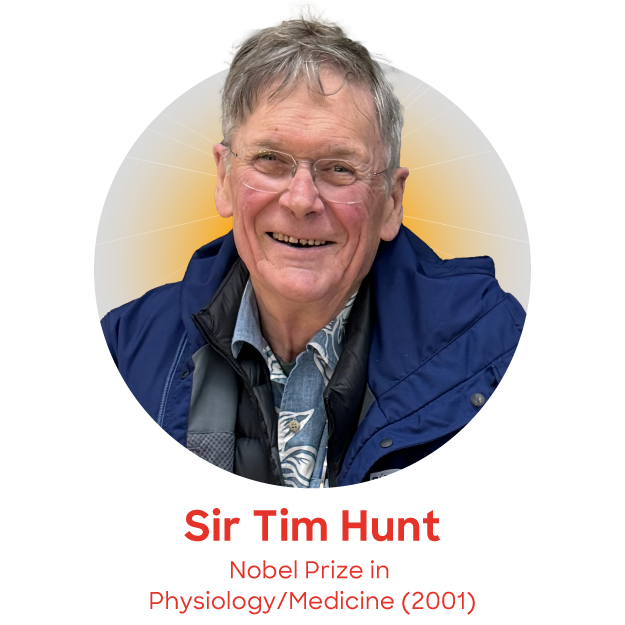Sir Tim Hunt
Sir Tim Hunt

Sir Tim Hunt’s illustrious scientific career started in 1964 as a graduate student at the Department of Biochemistry, University of Cambridge. In 1979, at the Marine Biological Laboratory in Woods Hole, Massachusetts, he assisted Joan Ruderman and Eric Rosenthal with experiments on the translational control of maternal mRNA in sea urchin and clam eggs. By 1982, he had almost exhausted the potential of sea urchin eggs in protein synthesis research until one key experiment led to the discovery of cyclins and subsequent research on the control of the cell cycle. For these findings, he shared the Nobel Prize in Physiology or Medicine in 2001 with Lee Hartwell and Sir Paul Nurse.
Sir Tim joined the Imperial Cancer Research Fund (now The Francis Crick Institute) in 1990 and became a fellow of the Royal Society (London) in 1991 and a foreign associate of the US National Academy of Sciences in 1999. He was awarded the Royal Society’s Royal Medal and was also knighted for his service to science in 2006.

